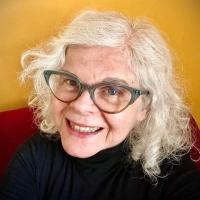The Metaphor Peddler
Three months later, a powerful cyclone, unforeseen by meteorologists but ominously predicted by climate change researchers, turned parts of the town into a detritus soup. For Ryan, the immediate positive result––and there were not many positive results in those circumstances––was the availability of a great deal of odd jobs. He plunged into them. He also applied for work at a colossal internet retail warehouse and thought of becoming a rideshare driver. He was desperate. He needed more money than ever, after Nathalie’s dementia diagnosis and her subsequent admission to a long-term memory care facility. Her treatment was not cheap. No longer counting on her income, he had to work double just to pay the bills, rent barely included.
He had quit metaphor-peddling at Carnival-by-the-Sea, so painful an outcome, so devastating, second only to his decision to abandon college. He felt empty, purposeless, hanging on in default mode. As he biked to work and home, along paths choked by homeless tents, or glancing at homeless camps from a distance, he panicked at the realization that he was one step short of becoming just as destitute. Many of those people had had jobs and careers. Some were still employed but were so poorly paid.
Ryan began to regard Lucas’ fanciful start-up proposal as a viable, down-to-earth way out. He tried to convince himself that if he hadn’t heard from the Brazilian since their dinner at the vegan restaurant, it was probably because Lucas was too busy, weaving his complex net of connections, to spend a few seconds texting him a line or two. He checked Lucas’ and his girlfriend’s social media. She was no longer mentioning him, and he hadn’t posted anything new in months. Maybe they were not together anymore! Ryan couldn’t help feeling attached to Lucas. He missed him. It might be because of his need to feel grounded again, but it might also be because of his persistent wet dreams.
One morning, Ryan stole an hour for himself and rode his bike to a promontory over the beach. The rain had nailed liquid mirrors on the pavement. The ocean was in a restless and angry mood; before reaching the shore, it gargled, swirled foam against its rocky teeth, and spat it upwards. Riding on huge boards, a few courageous surfers wore out the waves. Ryan sat on a bench and tried to meditate. Sea, seagulls, vehicles on the road behind him, his own anxiety: they were all too loud and intrusive. He stopped his meditation efforts and worked up the nerve to text Lucas. He asked about the start-up plans and nervously waited for a reply. Lucas texted him back two days later.
Sorry for the delay. Too busy in Portugal. HUGE opportunity here. About to found start-up for school of surfing + fado music + capoeira + samba dance + (still brainstorming). Need to postpone our metaphor-peddlers project for a while. I’ll let you know. UM GRANDE ABRAÇO (it means A BIG HUG.)
Ryan was unsure what to write back. He did several drafts and then decided not to reply at all.

Regina Rheda is a bilingual Brazilian-American writer who has lived in the US for twenty-five years. Before writing stories in English, she published fiction in Portuguese, for which she won awards in Brazil. Much of her work was translated for the volume First World Third Class and Other Tales of the Global Mix (University of Texas Press). Also a translation, Humana Festa, A Novel (Zip Publishing) dwells on animal and human rights activism. Her works have been studied at American universities in courses on Luso-Brazilian and Latin American literature. Regina recommends the World Socialist Web Site and Peaceful Prairie Sanctuary.


